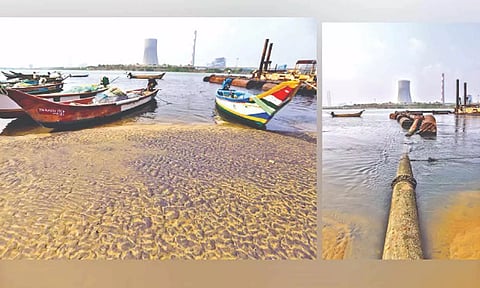

CHENNAI: Even as fishermen near Ennore allege unknown pollution turning Kosasthalaiyar River water into yellow killing fishes and prawns, tests conducted by the Tamil Nadu Pollution Control Board (TNPCB) have revealed that changes in the colour is due to a certain type of bacteria.
R Kannan, member-secretary of TNPCB, said that the samples collected, when the incident was reported, were to a marine research institute to identify the cause.
“However, test results showed that the colour change is a natural phenomenon caused by colonies of a certain bacteria,” he explained.
D Vasudevan, joint chief environmental engineer of the board, further clarified that samples were collected twice from the river when colour-change incidents were reported. “Samples were collected to ascertain whether effluents from nearby industries caused the colour change. But both the samples confirmed no effluents from industries. Further testing is required to identify the type of bacteria,” he added. “Recently, water around Perungudi turned pink. That was due to a type of bacteria that consumes sulphur. Aerobic digesting may cause such phenomena sometimes.”
A few weeks ago, fishermen around Ennore wetlands complained about ‘yellow pollution’ and pointed out to the large number of dead baby prawns and fish.
Fishermen and the TNPCB were unable to ascertain the cause, and the former alleged illegal dumping for effluents by some industries. However, they could not trace the source of effluent despite following the yellow water upstream.
They alleged that the death of baby prawns in the river had reduced their income drastically.
It may be noted that the TNPCB inspected a private industry in Ennore to verify whether the industry disposed of effluents into the river before collecting samples. However, they could not find any violation. With the test reports suggesting microbial reaction, the TNPCB has categorically rejected effluent pollution allegations.